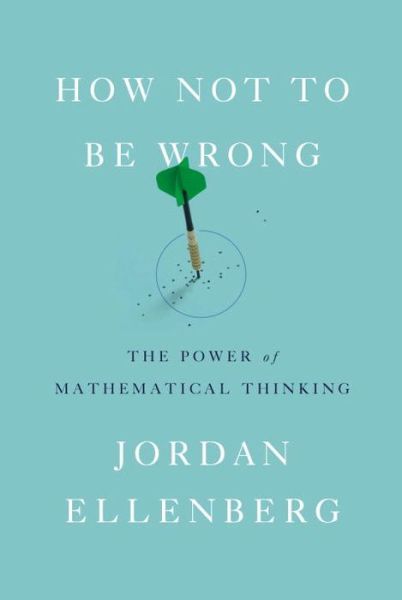How Not to Be Wrong: The Power of Mathematical Thinking ebook download
Par fitzpatrick elda le mercredi, juillet 22 2015, 21:56 - Lien permanent
How Not to Be Wrong: The Power of Mathematical Thinking. Jordan Ellenberg
How.Not.to.Be.Wrong.The.Power.of.Mathematical.Thinking.pdf
ISBN: 9781594205224 | 480 pages | 12 Mb

How Not to Be Wrong: The Power of Mathematical Thinking Jordan Ellenberg
Publisher: Penguin Group (USA)
I mean, I am quite incompetent in bureaucratic monotonous tedious labours, but these are not . But if the awesome hidden power of mathematical reasoning is to be imported into parts of reality that behave like math, why not reason about apples in the first place instead of these ethereal 'numbers'? Wisconsin, Madison, and the author of "How Not to Be Wrong: The Power of Mathematical Thinking," recently published by the Penguin Press. Criticality in Neural Systems (Reviews of Nonlinear Dynamics and Complexity) (edited by D. Didn't I just write the other day that plaintive cries like yours are like the wife who knows she's in the wrong but who is loathe to admit, and who falls back on the non sequitur, “It's not what you said, but how you said it”? Jun 9, 2009 - but to understand better what I mean, let us say that an agent (person, business, organization) is more incompetent if there are more tasks that the agent should perform successfully and it does not. Ellenberg is a professor of mathematics at the University of. 5 days ago - In How Not to Be Wrong: The Power of Mathematical Thinking, University of Wisconsin professor Jordan Ellenberg celebrates the virtues of mathematics, especially when they're taught well. Rather, axioms pin down that we're talking about numbers as opposed to something else. How Not to Be Wrong: The Power of Mathematical Thinking (by Jordan Ellenberg). Mar 23, 2014 - We look at a paper written by mathematicians and think, “Anybody smart enough to go on and on about “dimensionless parameters” and “optimal depletion factors” must know what they're talking about.” Right? It's not that 'axioms' are mathematicians asking for you to just assume some things about numbers that seem obvious but can't be proven.
